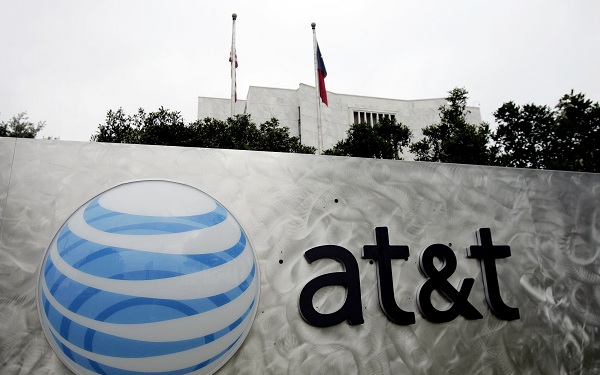
The AT&T, Inc. logo is seen on on of the company's buildings in San Antonio. (AP Photo/Eric Gay, file)
AT&T MOBILITY, LLC V. CONCEPCION (2011)
Vincent and Liza Concepcion responded to a misleading offer of free cell phones, only to be charged $30 in sales tax. When they attempted to join a class action, AT&T responded that the small-print contract they had signed required arbitration of all disputes and prohibited class-wide actions. Such contracts were prohibited by California law, but the five conservative Justices held that Federal law took precedence — the contract was binding and prohibited the Concepcions from joining together with other consumer fraud victims to seek redress. Rather, each individual had to pursue his or her case in an arbitration that naturally favored the corporate repeat player. AT&T knew that few consumers were likely to do so. The case gives large corporate retailers a powerful tool to escape accountability for damages that are too small to warrant individual action, but could be addressed effectively through class proceedings.

